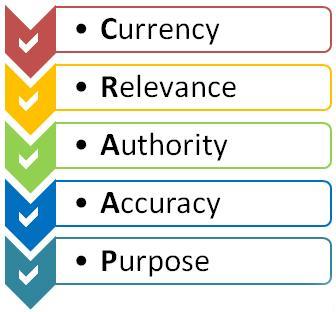Access the "Evaluating your sources" library guide!
The link will open in a new window or tab and take you out of this site
Top tips for evaluating information

In academic work, evaluating information is just as important as finding information. Consider these tips:
- Genre: What type of information are you dealing with? In a world that works largely online, it might be difficult to determine if you're dealing with a scholarly article, a chapter from an e-book, a magazine article, or possibly somebody's homegrown webpage. Understanding what type of information you're dealing with is key.
- Currency: When was the information produced or published? With academic information, sometimes older books or articles are entirely fine to consider but for some projects and in some disciplines, it's important to work with the most up-to-date information.
- Relevance: Is the information you're reading pertinent to your topic? Whether we search for information with Google or through a library, we can be easily influenced by the first hit that comes on screen. It might be useful to modify your search to find truly relevant results.
- Authority: Consider who wrote or published the information. Is the author known? Are there clues in the document that the author has an academic background? If the information before you is from an organization rather than a person, what do you know about that source? Is there any sign of contact information about the author? If you're dealing with a website, the aesethetics or layout, and even its web address can give clues as to authoritativeness.
- Accuracy: Is the information supported by evidence? Do you see evidence of the author citing others, or developing a credible case or argument? Has the information been reviewed or refereed? Does the language or tone of the piece seem free of bias? And consider things such as spelling or grammar in the writing.
- Purpose: Can you determine the purpose of the information? Is it to inform or teach you? Or might it be to sell you something or entertain? Can you discern the presence of opinion or propaganda in the writing? Does the point of view appear objective and impartial? Also, consider bias or perspective: do you sense cultural, political, ideological, religious, institutional or personal biases?
Thanks to the University of California, Chico, for many of these tips.
Visualize topic

